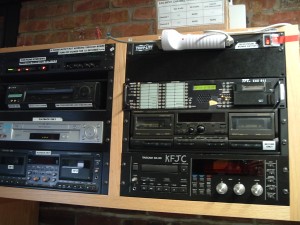Here in Wisconsin, radio stations broadcast 30 seconds of garbled audio that effectively degenerated into static. Similar results have been reported in Pennsylvania, Tennessee, Rhode Island, and Kentucky. In parts of California and South Carolina, the EAS message was apparently cued more than once, leading to a loop/echo effect.
In parts of Texas and Ohio, there was simply silence between the alert and end-of-message tones. Elsewhere in Texas, as well as in parts of Oregon, Alabama, Connecticut and Georgia, broadcasters never got the alert at all.
David Oxenford at the Broadcast Law Blog notes that the FCC will be relying upon stations’ reports to help diagnose and resolve these problems. He emphasizes that,
the FCC stated that it was not intending that the reporting system be a way to punish stations whose facilities did not receive or transmit the test, but instead to be a diagnostic tool to determine whether or not the system worked. So the failure to file the forms to report on the success of the test on your stations is much more likely to bring an FCC enforcement action against your station than is reporting that, for one reason or another, the test did not work.
The EAS system is essentially a daisy-chain, where one station’s alert signal triggers a receiver at another station, which can, in turn, trigger another one. Not every station’s alert is set to trigger another one in the chain. In general, bigger, more powerful stations are responsible for alerting less powerful ones. Given such a set up, it’s easy to see how just some interference, reception problems or other minor glitches can have a ripple effect. One station’s misfire can cause a whole area to go unalerted.
It will be interesting learn what the specific diagnoses of many of the problems were, and how they might be resolved. We should be hearing from the FCC on this issue in the coming months.



